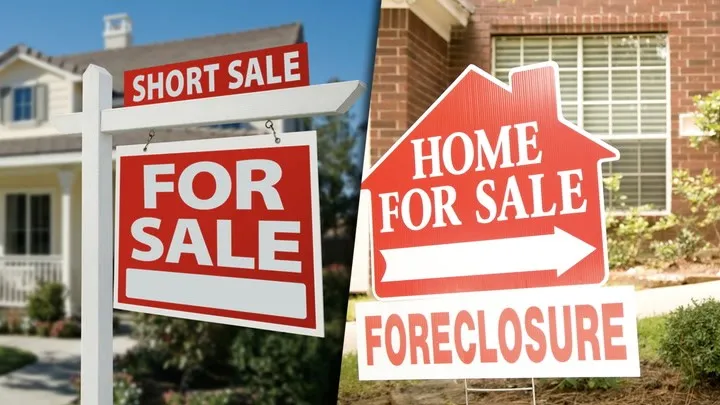When a homeowner struggles to make their mortgage payments, they may face the possibility of losing their home. In this situation, two options that they may consider are a real estate short sale and a foreclosure. Although these may seem like similar options, there are some important differences between the two.
A real estate short sale occurs when a homeowner sells their property for less than the amount owed on their mortgage. The proceeds from the sale are used to pay off as much of the mortgage balance as possible, with the remaining balance typically forgiven by the lender. Short sales can be a good option for homeowners who are underwater on their mortgage and cannot afford to continue making payments.
On the other hand, foreclosure is a legal process by which a lender takes possession of a property from a homeowner who has defaulted on their mortgage. The lender then sells the property in order to recoup their losses. Foreclosures are typically a last resort for lenders and can have serious long-term consequences for the homeowner.

Here are some key differences between a real estate short sale and a foreclosure:
Impact on Credit Score
Both a real estate short sale and a foreclosure will have a negative effect on a homeowner’s credit score. However, foreclosure is typically more damaging. A foreclosure will remain on the homeowner’s credit report for up to seven years, while a short sale may only remain for up to four years. Furthermore, a foreclosure can lower a credit score by as much as 200-300 points, while a short sale may result in a drop of 50-150 points.
Process Length
A real estate short sale can take several months to complete, as the lender must approve the sale and negotiate the terms with the buyer. A foreclosure, on the other hand, can take a year or more to complete, depending on the state’s legal process. This is because foreclosure requires a legal process that can take a significant amount of time.
Future Homeownership
Homeowners who go through a real estate short sale may be able to purchase another home within a few years, depending on the lender’s requirements. In contrast, homeowners who go through foreclosure may have to wait several years before they can qualify for another mortgage. The waiting period for a foreclosure can vary, but it is typically around seven years. In some cases, it may be possible for homeowners to qualify for a new mortgage sooner if they can demonstrate that the foreclosure was due to circumstances beyond their control, such as job loss or medical issues.
Financial Implications
Homeowners who go through a real estate short sale may be able to negotiate with their lender to avoid paying any remaining mortgage balance. However, homeowners who go through foreclosure may be responsible for any remaining mortgage balance after the property is sold. This is because the proceeds from the sale may not be enough to cover the entire mortgage balance. In addition, the lender may also be able to pursue the homeowner for the remaining balance.
Emotional Impact
Both a real estate short sale and a foreclosure can be emotionally taxing for homeowners. However, a foreclosure can be especially traumatic because the homeowner is forced to leave their home and may feel as though they have lost control of their life. In contrast, a real estate short sale may provide a sense of control, as the homeowner is actively involved in the sale of their property.
In conclusion…
While both a real estate short sale and a foreclosure can be difficult and stressful for homeowners, there are important differences between the two. Homeowners should carefully consider their options and seek advice from a trusted real estate professional or attorney to determine the best option for their situation. A real estate short sale may be a more favorable option



